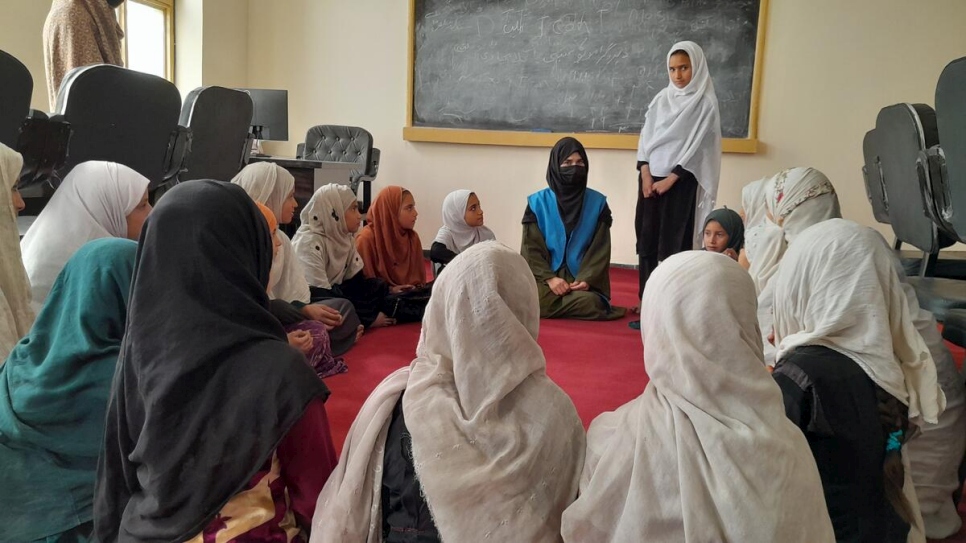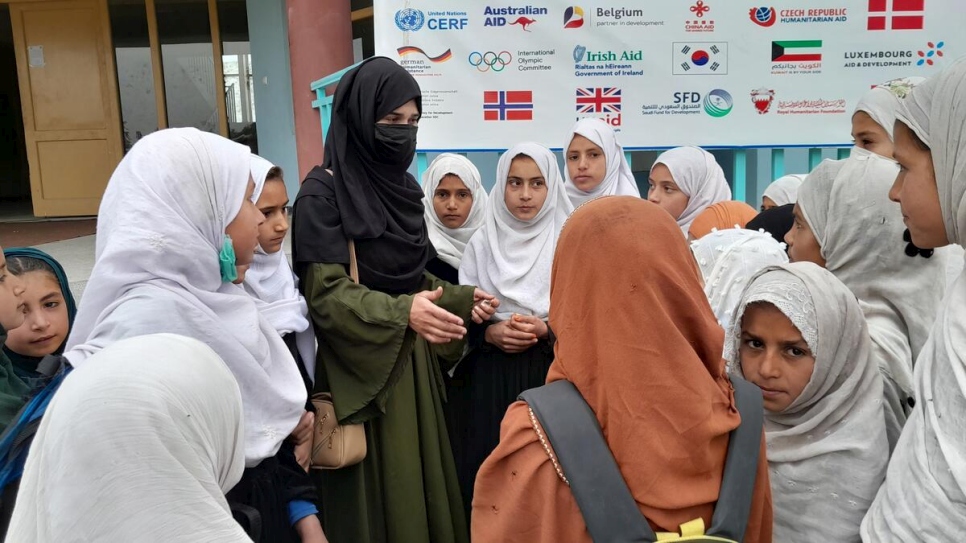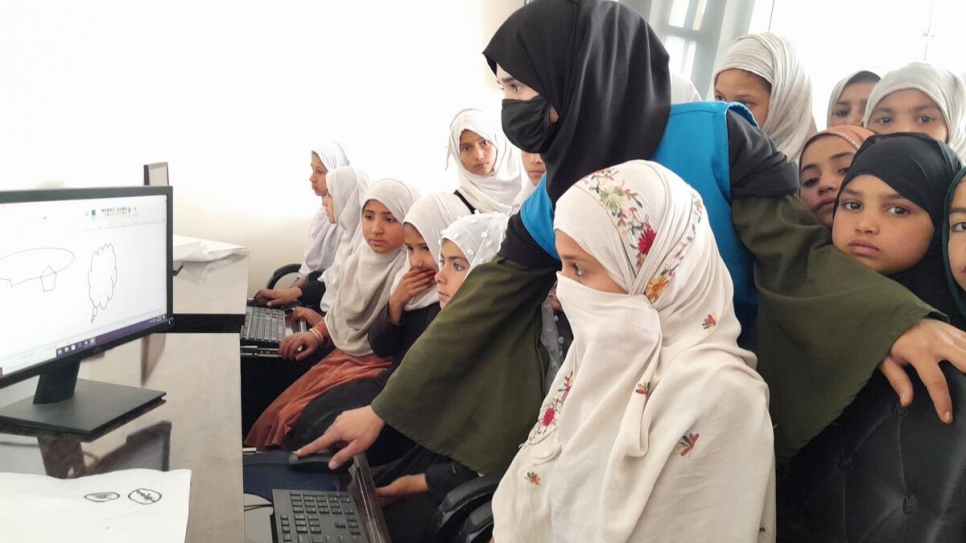Former refugee, now volunteer teacher, helps other Afghan girls get an education
After spending her early years in Pakistan, Sahar graduated in Afghanistan and now devotes her time to ensuring girls can get an education despite growing restrictions.

Sahar* with a group of girls at Lower Shiekh Mesri School in Nangarhar, Afghanistan, where she works as a volunteer teacher. © Talwasa Sakhizai/WADAN (UNHCR partner)
As a young girl, 23-year-old Sahar* spent her early years growing up in Bot refugee camp in Peshawar, Pakistan. Her father had been a teacher in Afghanistan and encouraged everyone in the family to study hard. Returning to Afghanistan in 2010, Sahar continued to learn, graduating from university with a degree in computer science.
Now, she’s passionate about passing on the skills she has learnt to other girls. She currently works as a volunteer teacher at Lower Shiekh Mesri School in Nangarhar, built by UNHCR, the UN Refugee Agency, where she teaches computer skills and English. Many students here are refugee returnees, like her, or were formerly displaced due to conflict. “I want to serve as a role model, and motivate the girls to stay in school,” Sahar explained. “I continued my education [despite] a lot of financial problems and cultural challenges.”
Launched in October 2022, UNHCR’s Female Volunteering Initiative in the eastern Nangarhar region of Afghanistan aims to inspire and teach girls through volunteer female school graduates, university students and graduates. Currently, 24 female volunteers are taking part in the programme, helping with tutoring, peer mentorship and organizing extracurricular activities for female students.

Sahar is passionate about passing on the skills she has learnt to other girls. She teaches computer skills and English at Lower Shiekh Mesri School, which was built by UNHCR. © Talwasa Sakhizai/WADAN (UNHCR partner)
“I feel what other girls at the school feel. I firmly believe that the computer skills and knowledge of English … can help the girls continue their education online, even at home,” said Sahar.
She said that both disciplines could open new learning pathways for female students, many of whom are now forced to stay at home due to recent restrictions preventing girls from studying beyond grade six, as well as on their movement.
“It will help them to access various education sources on the internet while pursuing their journey of getting educated. It will also help students to do their research and gain more knowledge on topics they are interested in.”
Sahar described growing up as a refugee in Pakistan as difficult. “My parents couldn’t afford even the basic life essentials, including a further education for me and my siblings. Now we have returned, I am happy. We have a decent home, and I was able to get a higher education back in Afghanistan.”

"I firmly believe that computer skills and knowledge of English … can help the girls continue their education online, even at home," said Sahar. © Talwasa Sakhizai/WADAN (UNHCR partner)
Her own journey has made her more determined to support others. “Seeing young girls drop out of school or prevented from going to learn due to lack of female teachers makes me feel sad. The situation may worsen for girls and women and will also lead to early and forced marriages.”
As well as becoming a volunteer herself, Sahar also reached out to her peers and fellow female graduates to encourage them to join the UNHCR initiative.
“I don’t receive a teaching salary, but the joy of seeing girls come to school every day is the source of my pride and satisfaction.”
*Name changed for protection reasons
Talwasa Sakhizai coordinates women's projects for WADAN (the Welfare Association for the Development of Afghanistan), a partner of UNHCR’s that is implementing the Female Volunteering Initiative.
